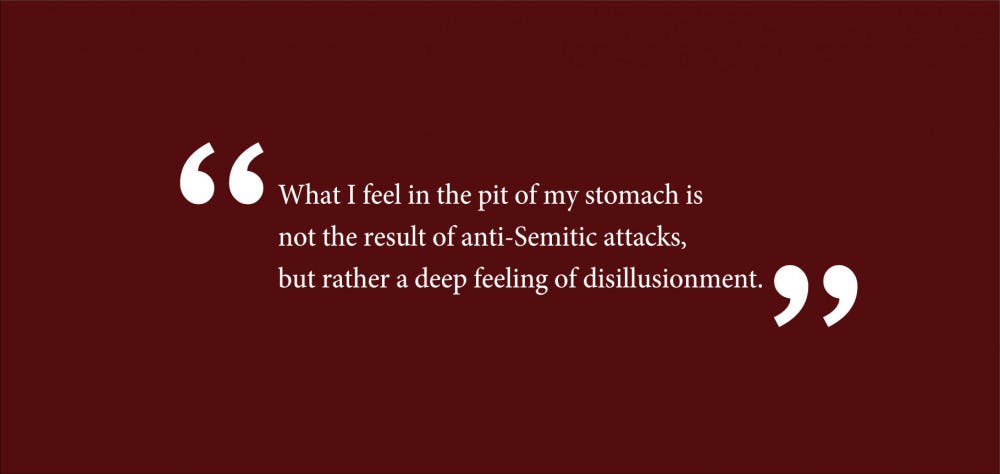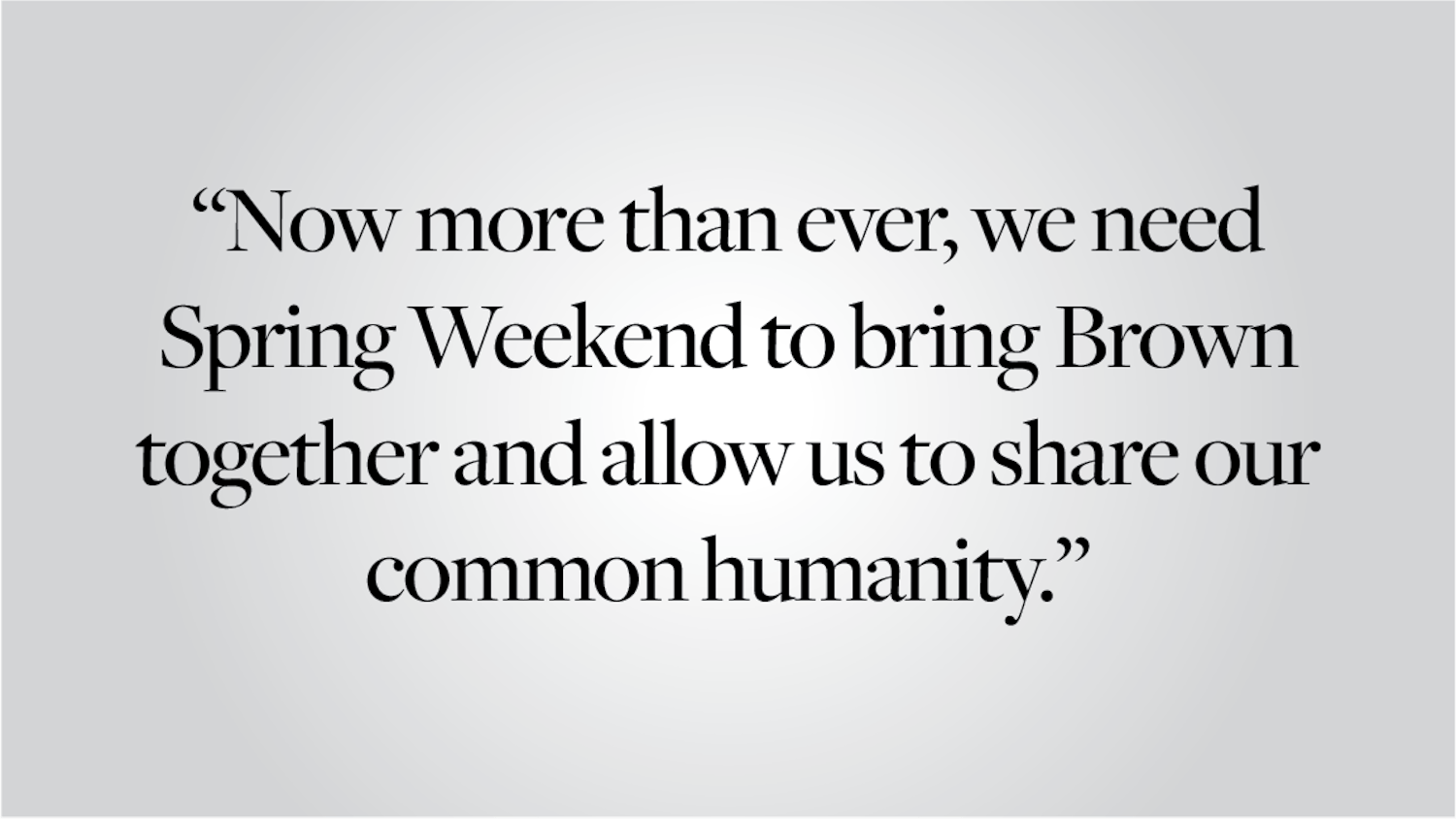I used to spend a lot of time avoiding news about Israel and Palestine. In particular, learning about human rights violations committed by the Israel Defense Forces was deeply upsetting — it was hard to discover that the fairy tale place I learned about as a child in Hebrew school wasn’t so magical after all. Thus, for a long time, I retreated from the issue altogether.
During my time at Brown, I have realized that this kind of avoidance is not productive, and now I frequently engage with issues relating to Israel and Palestine, both formally and informally. So, to my fellow Jews: I understand these issues are hard, but it is crucial to learn to sit with this discomfort. And to my non-Jewish friends, I ask for your patience with me when we discuss these issues.
I cannot speak for all Jews, but I believe my upbringing in regards to Israel is common. Growing up, I learned about Israel in Hebrew school, said “next year in Jerusalem” every year at Passover, and saw relatives breaking a glass during their weddings — which is meant to symbolize the destruction of the Second Temple in Jerusalem. The land of Israel, and Jerusalem specifically, has always been intertwined with my Jewish identity. As such, attacks on Israel often feel like personal attacks, even if they are not intended to be. Comments like “Israel is an apartheid state” or “Zionism is racism” always sting the most, sometimes feeling like a punch to the gut. For a long time, I considered these types of attacks on Israel anti-Semitic. After all, these attacks hurt me, and they hurt me because of my Jewish identity.
Upon deeper reflection, I realized that these attacks hurt not because they are necessarily anti-Semitic, but because they so sharply bring into focus Israel’s failure to live up to the collective dream, among many Jews, of a homeland that fosters a sense of belonging without violence or oppression. What I feel in the pit of my stomach is not the result of anti-Semitic attacks, but rather a deep feeling of disillusionment.
Thus, while it is important to recognize anti-Semitic tropes are sometimes used when criticizing Israel, that does not mean all statements about Israel that hurt me are necessarily anti-Semitic. While rhetoric like “Israel is an apartheid state” does not fully capture the complexities of issues pertaining to Israel and Palestine, it is inaccurate and unhelpful to dismiss these statements as anti-Semitic. Moving forward, I invite my Jewish friends to join me in reflecting on issues in Israel and Palestine, even when it is uncomfortable or painful.
To my non-Jewish friends, if you would like to engage in a productive conversation about Israel with me, please be patient. Realize that although Israel is halfway across the world, it’s still an intensely personal and emotional topic for me. I recognize that I am not the only person for whom political issues carry emotional weight, and I am certainly not arguing that my emotions are more important than anyone else’s. In fact, I can imagine these same issues are also deeply personal and emotional to Palestinians and people of Palestinian descent. It is also important to validate those feelings, and I ask that my pro-Israel friends take care to avoid hurtful, sweeping generalizations as well.
If you truly want to engage in productive dialogue together, it’s important to recognize the intensely personal nature of this topic. Try to understand where I am coming from. In turn, I will do my best to listen. Moving forward, let us try to create spaces for open, honest and thoughtful dialogue.
Rebecca Aman ’20 can be reached at rebecca_aman@brown.edu. Please send responses to this opinion to letters@browndailyherald.com and op-eds to opinions@browndailyherald.com.





